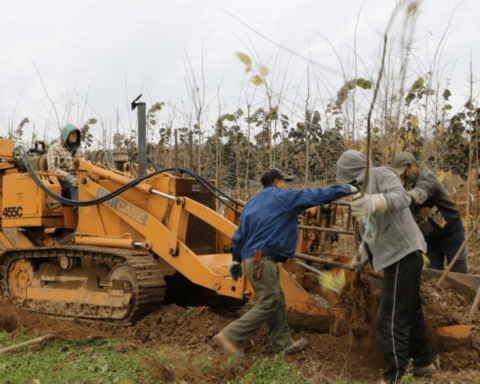The temporary migrant workers’ program is not working for labourers or for employers in many cases, and Canada should learn how to “walk and chew gum” when it comes to the program, says the chair of a Senate committee that visited Atlantic Canada.
Ratna Omidvar, independent Ontario senator and chair of the Standing Committee on Social Affairs, Science, and other senators senators visited P.E.I. and N.B. last month to investigate concerns about temporary migrant workers from them, employers and advocates.
They visited multiple farms and fishery plants — the two main industries for temporary foreign workers — to hear concerns on the living conditions of migrant workers such as housing, working conditions and well-being.
“The temporary foreign worker program and its many streams does not seem to be fit for purpose anymore. Neither for employers nor for workers,” said Omidvar.
Meeting with reporters, she said they expressed their need for foreign labour as they have no other way of finding workers and “would be forced to shut down.”
She also noted workers’ complaints about a lack of affordable and liveable housing, low work hours and alleged ill-treatment.
“In Canada, we should be able to talk and chew gum at the same time. We should be able to have a steady supply of labour, but we should also be able to protect the workers’ rights as they are available for other workers.”
Recently, three foreign temporary workers from Mexico have spoken out about their experience working for lobster company LeBreton Fisheries, in Campbellton, N.B. Javier Montaño de Dios, one of the people in this group, said LeBreton gave their 80 migrant workers termination letters after they voiced their concerns regarding the prolonged lack of work and their living conditions.
“They said that if we don’t sign we will not considered to work on next year’s season. Under those threats, many of my coworkers decided to sign,” Montaño de Dios told New Canadian Media.
SaltWire contacted Kathlin Lebreton, one of the owners of Lebreton Fisheries, but received no response.
Omidvar heard their complaint, specifically about fear of retaliation when looking for other jobs in N.B.
“We had a lot of people talk about ‘I’m not going to speak up because I’m afraid I’ll lose my job.’” she said. “We have to remember that migrant workers have less agency than others for reasons of language, for reasons of culture, for lack of support.”
Niger Saravia, an organizer with Migrant Workers Alliance for Change in N.B. in the fishery worker sectors, said this is not a problem with a single employer, but with the whole industry.
“The system is set up in a way that will benefit only the employer, not the workers,” he said.
Saravia, who is an immigrant himself, said closed work permits tying a worker to one employer are counterproductive, leaving responsibility for the worker to the company.
Furthermore, Saravia said government is not properly regulating companies to keep their end of the deal in protecting workers, and since many of them choose to stay silent due to language barriers and fears of reprisal, abuse oftentimes goes unnoticed.
“Even though there are laws in place for these employers to fulfill, the government is not enforcing those regulations when it comes to workers protections,” he said.
Saravia said he called on Prime Minister Justin Trudeau to give permanent residence to all migrant workers and students in reference to a campaign promise he did back in December 2021.
“People are getting deported. People are getting evicted from their houses. People are being abused,” he said. “Migrant workers are the one who lives in their communities. They support this economy. And it’s not fair that the government is trading all these migrant workers as second-class citizens.”
Omidvar said the full report will be published in March 2024, which will contain more details on their observations and formal suggestions.
Story and photo produced in partnership between New Canadian Media and SaltWire.

Giuliana Grillo de Lambarri
Giuliana Grillo de Lambarri is a student based in Fredericton, New Brunswick. She is originally from Lima, Peru, and came to Canada to pursue a career in journalism and political science. To Giuliana, journalism is all about forming a sense of community and shedding light on issues that affect everyone, including people who have been historically ignored by the media. When she isn't working, she is usually enjoying a walk along the trails of Fredericton or on the phone with her family. Have a story tip or pitch? Contact her at [email protected].





